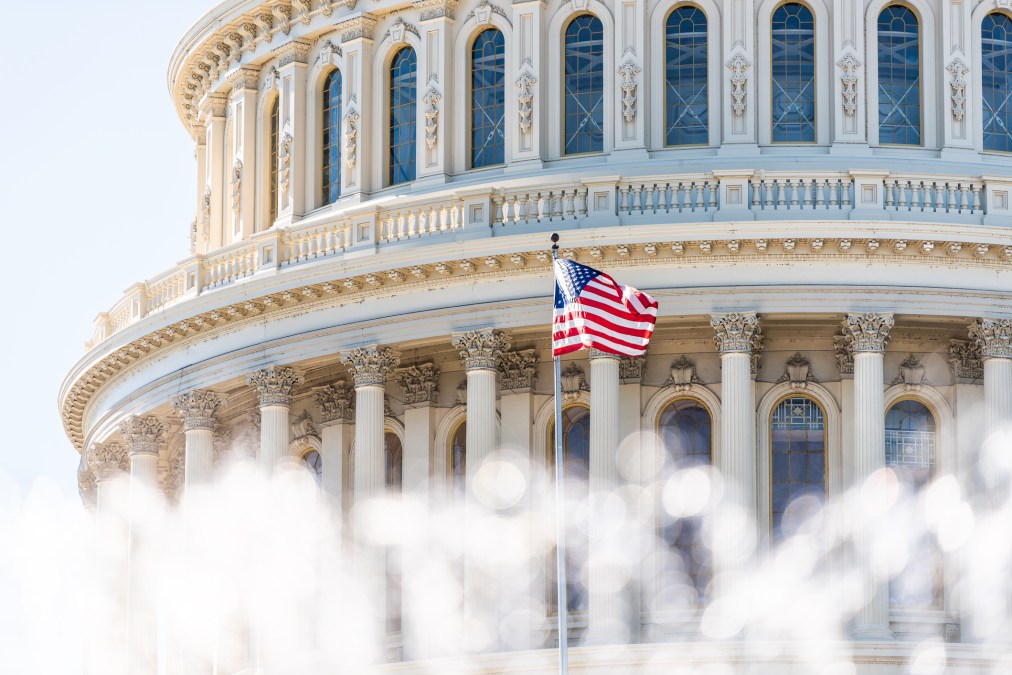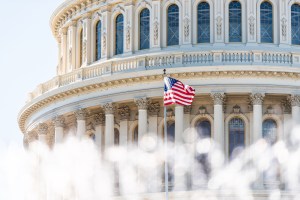‘CEOs are stepping up’ free-of-charge. How the tech industry is helping government during COVID-19

Tech companies have a message for the government: “Help us help you.”
That sentiment, told to FedScoop by founder and President of Yext Brian Distelburger, was echoed by a host of tech companies opening their products to local, state and federal agencies alike as governments face the challenges of the novel coronavirus pandemic.
Offers range from assistance with remote working to free cloud storage and services for researchers working on a vaccine for the virus, and they extend far beyond those listed in this report. The government too is responding by opening up data, forming partnerships with tech companies and granting new authorities to work with telecommunications companies.
“This is unprecedented and so the response from the tech sector has been unprecedented,” Nick Sinai, former deputy federal CTO, told FedScoop. Challenges during the pandemic range from agencies like the Department of Veterans Affairs responding to the direct effects of the virus to much of the government faltering under the strain of “maximum telework.”
“Tech CEOs are stepping up and offering pro-bono products, services, and support – they want to do anything they can to help,” Sinai added.
Sinai is a senior advisor to the venture capital firm Insight Partners. Many of the companies on the firm’s portfolio are among those offering their services pro-bono. A list of more than 50 companies has been compiled into a spreadsheet to showcase those offering services to assist with benefit enrolment, remote-working and sharing public information.
Distelburger said Yext is in talks with senior federal agency officials to bring its natural language processing to government websites to better understand the sentiment behind the questions people are searching for on the internet related to the coronavirus and help provide people with the answers based on CDC data. The benefits of the service are twofold: For citizens, Yext offers an easy way to quickly find answers to their questions about COVID-19. For governments, it provides aggregated data about what constituents are asking so leaders can tailor their communications. The company has already provided a similar service to the state of New Jersey.
“I am thrilled we can help Apple stores update their hours for the new iPhone launch,” Distelburger said of the company’s typical work, “but boy, this is way more important.”
Other tech companies are finding their services fit critical needs during the pandemic. Smartsheet, a remote project-management software company, has built a free template to track COVID-19 response efforts for government agencies.
“Smartsheet is all about allowing the citizen to be able to achieve more, to have better insight and move faster,” said Amy Frampton, Smartsheet’s vice president of product marketing. Those qualities “become really critical in a time like this.”
Smartsheet’s government-specific tools are FedRAMP authorized and 1,800 agencies across international, federal, local and other government organizations are using the program. The COVID-19 template has been downloaded 10,000 times, the company said.
Tech giants pitching in too
Titans of the technology industry have pitched in as well. Amazon committed $20 million in cloud computing resources “to accelerate diagnostic research, innovation, and development” for both tracking and mitigation initiatives.
“[O]ne area where we have heard an urgent need is in the research and development of diagnostics, which consist of rapid, accurate detection and testing of COVID-19,” said Teresa Carlson, vice president of worldwide public sector at Amazon Web Services. “Better diagnostics will help accelerate treatment and containment, and in time, shorten the course of this epidemic.”
Microsoft announced it’s offering its Healthcare Bot service powered by Microsoft Azure to help agencies answer basic questions using robotic process automation. The CDC is using the bot to “quickly assess the symptoms and risk factors” for people who may have been exposed and suggest what to do next, according to a Microsoft blog post.
Google said it will donate more than $800 million to frontline organizations and small- and medium-sized businesses. The company also built a portal of coronavirus-related information.
And Apple last week formed a partnership with the federal government to build a website that uses Centers for Disease Control and Prevention data to screen people experiencing coronavirus symptoms. The CDC plans to encourage other companies to build additional COVID-19 tools.
Some restrictions
For many companies, working with state and local governments could be easier than the federal government, which requires FedRAMP authorization to ensure cloud products are secure. The General Services Administration, which operates FedRAMP, did not respond to multiple requests for comment on how it is working with the private sector.
“One of the challenges is there are a lot of offers to help,” Sinai said. “Inside of government, you have to figure out what are the most appropriate set of offers to leverage, and that takes knowledgeable people too.”
There is also the matter of federal acquisition laws and regulations, said Joe Stuntz, head of federal and platform at encryption company Virtru and a former Office of Management and Budget official.
“There are reasons why people can’t just give stuff away,” he said. For instance, if an agency accepts a reduced-price or free service from a company that later wins a lucrative contract, the free offer could be fodder for a protest. “Tech can enable mission, but there are rules in there for a reason,” Stuntz added. Virtru is offering its encryption and privacy technologies for free as well.
One workaround is forming partnerships instead of going through the contracting process. A senior administration official told FedScoop that the White House Coronavirus Task Force, the Federal Emergency Management Agency and CDC used a “partnership” for its work with Apple on its COVID-19 website.
“There was no contract awarded and there was no cost to the taxpayers,” the official said.
For agencies going through normal contracting avenues, there is a need for speed and getting money to contractors. The Air Force is working through its AFventures platform to strengthen its small business and emerging technology supply chain, which its acquisition head Will Roper said remains strong.
A silver lining Sinai sees is that agencies across the government are seeing the returns on cloud migrations and modernizing enterprise services. And in the Air Force, Roper said that the emphasis on becoming a digital Air Force laid the groundwork for the department’s telework success.
“This will actually accelerate the move to [Microsoft] Office 365 in the Department of Defense,” he said.






